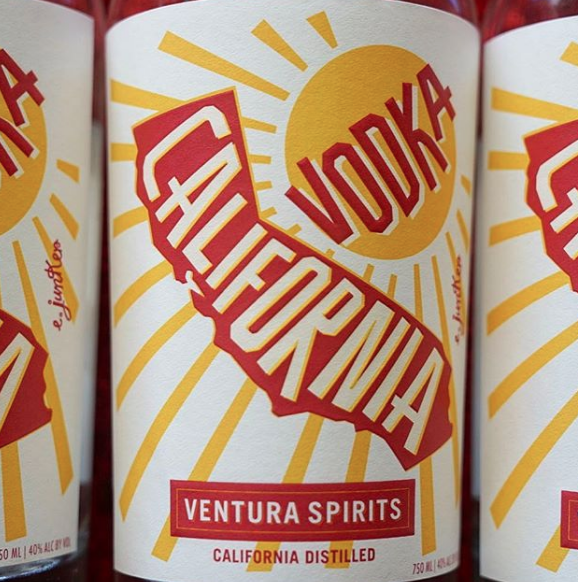
With a busy week behind you and the weekend within reach, there’s no shame in taking things a bit easy on Friday afternoon. With this in mind, every Friday TriplePundit will give you a fun, easy read on a topic you care about. So, take a break from those endless email threads, and spend five minutes catching up on the latest trends in sustainability and business.
There is nothing wrong with fermentation, unless, of course, we are talking about mass quantities of food. Non-profit groups such as the Natural Resources Defense Council (NRDC) have concluded up to 40 percent of all food in the U.S. ends up in the landfill before it has any chance at landing on a fork.
But fermentation at a very micro level can be a good thing for yogurt, kim-chi, pickles and of course, booze. The use of old and wanted food is nothing new; after all, the Egyptians and Ethiopians had supposedly been making beer from old bread and other foods piled around for thousands of years. Toast Ale is only one example of companies doing the same thing during the 21st century. The brewery makes its bread out of unsold bread, and in the meantime helps to chip away at the statistics suggesting one-third of all bread ends up being thrown out before it can be sold. Dogfish head Brewery and Mario Batali have also worked on making beer out of food waste.
Several distilleries in the U.S. and abroad are not only finding innovative ways to tackle food waste and boost waste diversion, but they are having a lot of fun, too, as they make some pretty respectable spirits - plus they are offering a new take on "getting wasted."
In Southern California, Misadventure Vodka is making its tipple out of unwanted starches. Old hot dog buns, muffins, bagels and donuts are among the baked goods that are prevented from going to landfill. Misadventure, located north of San Diego in the town of Vista, says it diverts 1,500 pounds of such foods a week. In an interview with a local newspaper, the company's founders say their ethos is modeled after the Danish architect Bjarke Ingels, who coined the term "hedonistic sustainability." Bottles of the vodka cost about $22.
“Now, people don’t have to sacrifice to be sustainable when it comes to choosing our beverage, and that is what makes us unique,” Misadventure co-founder Whit Rigali told The Coast News Group during an interview this summer. “That is one of the big surprises with our vodka — it doesn’t taste like every other vodka — it has a unique taste and flavor.”
Being located within an agricultural area also offers opportunities to make alcohol out of food waste. Ventura County has long been known as a leading strawberry producing region, but many of those berries are often lost between picking, packing and shipping. Others just will never be selected by consumers. "Ugly" strawberries are a tough sell for consumers. So, Ventura Spirits decided to buy those misshapen and unwanted berries instead.
The distiller salvages fruit and other produce that would otherwise be rotting in fields or landfills. The company distills a vodka out of strawberries; additional offerings include a spirit, Opuntia, made from the prickly pears that grow on Nopal cacti. Gin made from botanicals such as sage, in addition to a brandy that is also concocted out of strawberries, round out the company's product line. In a recent interview with NPR, the company claimed it had prevented 500,000 pounds of strawberries from local landfills over the past three years.
One company is turning food waste into something still used at bars: soap.
The scaleability of doing this at a nationwide and coordinated level is questionable, but give Bacardi credit for its outreach in Australia and New Zealand. The distillery has been working with 42Below Vodka to collect old lemons and fruit that once garnished and flavored cocktails. 42Below then collects the lemon rinds, cherry stems and other fruit rinds, churns them into a liquid lemon soap and distributes it to those same bars at no charge. Barcardi and 42Below have also launched a tongue-in-cheek video series that explains how this process works.
The beauty of making alcohol out of food waste is that it can actually lower costs. As noted in Food and Wine, Misadventure's products are priced competitively because preventing food from going to landfill actually is a boost for the company's bottom line.
Image credit: Ventura Spirits/Instagram

Leon Kaye has written for 3p since 2010 and become executive editor in 2018. His previous work includes writing for the Guardian as well as other online and print publications. In addition, he's worked in sales executive roles within technology and financial research companies, as well as for a public relations firm, for which he consulted with one of the globe’s leading sustainability initiatives. Currently living in Central California, he’s traveled to 70-plus countries and has lived and worked in South Korea, the United Arab Emirates and Uruguay.
Leon’s an alum of Fresno State, the University of Maryland, Baltimore County and the University of Southern California's Marshall Business School. He enjoys traveling abroad as well as exploring California’s Central Coast and the Sierra Nevadas.














